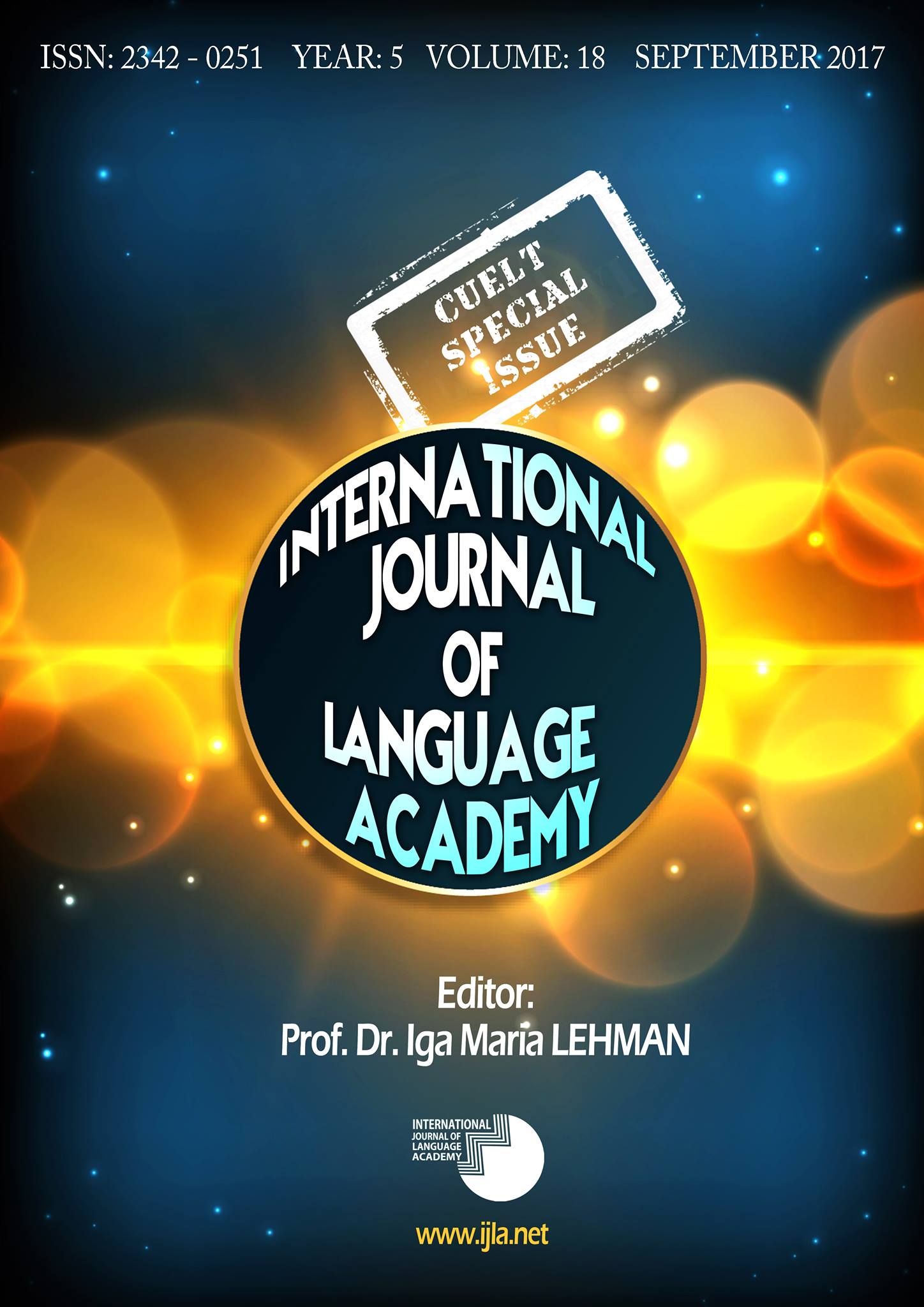Author :
Abstract
Bu makale, iki farklı bilişsel strateji olan anlamsal haritalandırma ile ezberleme yönteminin kelime öğrenimdeki etkisini araştırmayı amaçlamaktadır. Bu çalışma, 36 adet yabancı dil olarak İngilizce öğrenen öğrenciler üzerinden yürütülmüştür. Çalışma öncesinde öğrencilerin gerekli kelimelere yönelik bilgilerini belirlemek amacıyla bir ön test yapılmıştır. sonuçlar, iki grup arasında anlamlı bir farkın olmadığını belirlemiştir. gruplardan bir tanesi kelime ediniminde ezberleyici yönteme maruz kalırken diğer grup anlamsal haritalandırma yöntemine maruz kalmıştır. Üç haftalık çalışmalardan sonra yürütülmüş olan art sınavının sonuçları, çalışmanın başlangıcıyla bitimi arasında her iki grup arasında kelime öğreniminde anlamlı bir fark olduğunu göstermesine karşın, her iki deneyimsel grubun sonuçları arasında anlamsal bir farkın olmadığını belirlemiştir. Bu sebepten dolayı, şartları da dikkate alarak, ezberleyici yöntemin, anlamsal haritalandırma yöntemi gibi daha dahiliyet gerektirenstratejiler kadar etkili olabileceği sonucuna ulaşılmıştır ve aynı zamanda bütün eleştirilere rağmenikinci dil kelime ediniminde zaman kazandıran bir alternatif olduğu sonucuna ulaşılmıştır.
Keywords
Abstract
This article tends to investigate the effect of two different cognitive strategies, which are semantic mapping and rote memorization, in vocabulary acquisition. The study was conducted on thirty-six elementary level EFL students which were divided into two groups. A pre-test was conducted in order to identify the level of knowledge of the required vocabulary prior to the research study and it was seen that there was no significant difference between the two groups. While one group was exposed to rote memorization in vocabulary acquisition, the other was exposed to semantic mapping for the same purpose. As for the post-test which was administered after the 3-week treatment, the results showed that even though there was a significant difference from time 1 to time 2 for both groups, there was no significant difference for the effectiveness between both experimental groups. Therefore, it was concluded that, depending on the context of learning, rote memorization can also be effective as ‘more involvement required strategies’ such as semantic mapping and it is also a time-saving and alternative in L2 vocabulary acquisition despite all the criticism.





